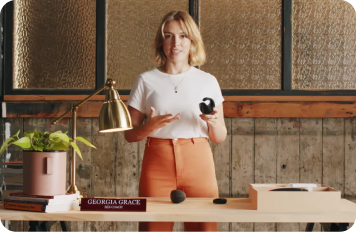Key takeaways
- Premature ejaculation (PE) can often be resolved with a combination of medical treatments, behavioural techniques, and psychological support, with many men seeing improvement within 2-4 months.
- Methods like Kegel exercises, edging (stop/start technique), and the squeeze method can help build ejaculatory control, though they may require practice and a supportive partner.
- Consulting a doctor is crucial for diagnosing the type of PE and creating a tailored treatment plan, as combining medical and behavioural approaches often yields the best results.
Frustration. Disappointment. Embarrassment. Premature ejaculation — or any type of sexual dysfunction — can totally destroy your sex life and take a heavy toll on your relationship as well.
Being a minute-man in the sack can turn what should be a wildly pleasurable activity into a source of anxiety and shame. The good news? It doesn’t have to be this way as you can take decisive steps to improve the situation.
With the right treatment, you can regain your control and confidence to enjoy the sex you and your partner deserve.
“A lot of men will achieve complete resolution from premature ejaculation without lifelong or long-term treatment,” insists Sydney GP Dr Matt Vickers. “The underlying issues are often completely reversible. Effective treatment is available.”
All of which is reassuring info — here are some of the most common tactics to help you last longer in bed.
Talk to a doctor about erectile dysfunction treatment options
Your doctor will want to figure out whether you’ve got a “primary” or “acquired” form of premature ejaculation. Delayed ejaculation can also be related to premature ejaculation, and understanding both conditions is crucial for effective treatment.
Primary means that you’ve wrestled with PE since the very start of your sex life, whereas acquired means the condition has suddenly developed at a later stage.
From here, your practitioner will create a plan based on your individual circumstances, including clinically proven treatment, such as Pilot’s clinical premature ejaculation plans.
You’re unlikely to find yourself on a life-long clinical treatment course. Dr Vickers says a lot of men find a marked improvement after 2-4 months, after which they often come off the treatment altogether. Erectile dysfunction can also impact sexual performance, and addressing it may be part of your overall treatment plan.
Work out with Kegel exercises
An Australian study from James Cook University in 2019 found that 83% of PE sufferers gained better control of their ejaculatory reflex after doing targeted pelvic floor exercises [1].
For the research, the men were told to train their pelvic floor muscles that help to build and maintain penile rigidity. The men were required to tighten and hold these muscles at regular intervals throughout the day in order to build strength and control.
You can identify these muscles by stopping urination midstream or by drawing your testicles up towards your stomach (think “nuts into guts”).
Once you’ve pinpointed these muscles you can start training them by engaging and holding the tension for a count of ten before relaxing.
Try practising this move in sets of 10 during the day. Doing this pelvic floor workout on a regular basis can potentially improve your ejaculatory control. The best bit? You can even do it on the bus.
For the research, the men were told to train their pelvic floor muscles that help to build and maintain penile rigidity. The men were required to tighten and hold these muscles at regular intervals throughout the day in order to build strength and control.
You can identify these muscles by stopping urination midstream or by drawing your testicles up towards your stomach (think “nuts into guts”).
Once you’ve pinpointed these muscles you can start training them by engaging and holding the tension for a count of ten before relaxing.
Try practising this move in sets of 10 during the day. Doing this pelvic floor workout on a regular basis can potentially improve your ejaculatory control. The best bit? You can even do it on the bus.
Live on the edge
Different techniques can enhance sexual activity, making the experience more enjoyable and prolonged.
For this method, instead of getting straight to the destination, edging is about taking the most roundabout route possible. Otherwise known as the stop/start technique, edging is another way to build up better control in bed.
“What it involves during sex or masturbation,” Dr Vickers says “is getting close to ejaculation and then, once you start to feel the sensation arriving, you stop whatever you’re doing and wait until the temptation to ejaculate passes.
“Then you start again and continually repeat that process over a period of time.”
The basic idea here is that practice makes perfect. As you become more familiar with the precursors to orgasm, you can train yourself to delay the moment of truth by building up your tolerance to resist the pressure to climax.
The only caveat, Dr Vickers warns, is these constant interruptions can prove somewhat disruptive for whoever you’re having sex with. “You need a supportive and understanding partner,” he admits.
“A lot of people find they can’t do it very easily with people who are casual partners or new partners.”
Feel the squeeze
Another type of biofeedback that’s similar to edging is the squeeze technique.
During sex or masturbation, when you can feel like you’re about to ejaculate, stop whatever you’re doing (we don’t want to know) and firmly squeeze below the head of your penis.
In particular, focus on applying pressure to the urethra, the tube that runs along the underside of the penis.
Essentially, what this does is forcibly push blood out of your penis to rapidly de-escalate the sexual tension. In the process, it stops you from ejaculating.
The squeeze method isn’t always for everyone, Dr Vickers admits.
“A lot of men report that this technique often leads to them losing erections or that their partners are not happy with all the stopping and starting. So again you do need to be in a good situation with an understanding partner that's happy to support you.
“But the combination of using these techniques [ie edging and/or squeezing] and using medical treatments is often found to be effective.”
Over-the-counter help for sexual health
Another option is to experiment with over-the-counter pharmaceutical aids, namely topical creams or sprays too that are effectively local anaesthetics. It is important to consider your overall sexual health and consult a professional to address any underlying issues.
These serve to numb the tip of the penis and, by reducing the sensation, delay ejaculation.
If you’re planning to try them out, stay mindful of a couple of things, Dr Vickers says. “If you don’t wear a condom, you can potentially numb your partner, which they may not be very happy about.
“The other issue is that sometimes the lack of sensation can lead to loss of erection. But a number of men find these over-the-counter methods to be quite effective.”
Don't go it alone
Firstly, because you're not alone. In fact, around 1 in 3 men experience premature ejaculation at some point in their life [2].
Your chances of conquering the problem are significantly lower if you try and fix it alone. That’s because premature ejaculation can be a complex issue that presents itself in a variety of forms and has multiple potential treatments.
“Often the best treatment is a combination of behavioural and psychological techniques combined with medical treatment,” Dr Vickers says.
If you speak to your doctor they can diagnose the specific type of PE that you’re struggling with and then determine the best ways to tackle the problem.





















.svg)




